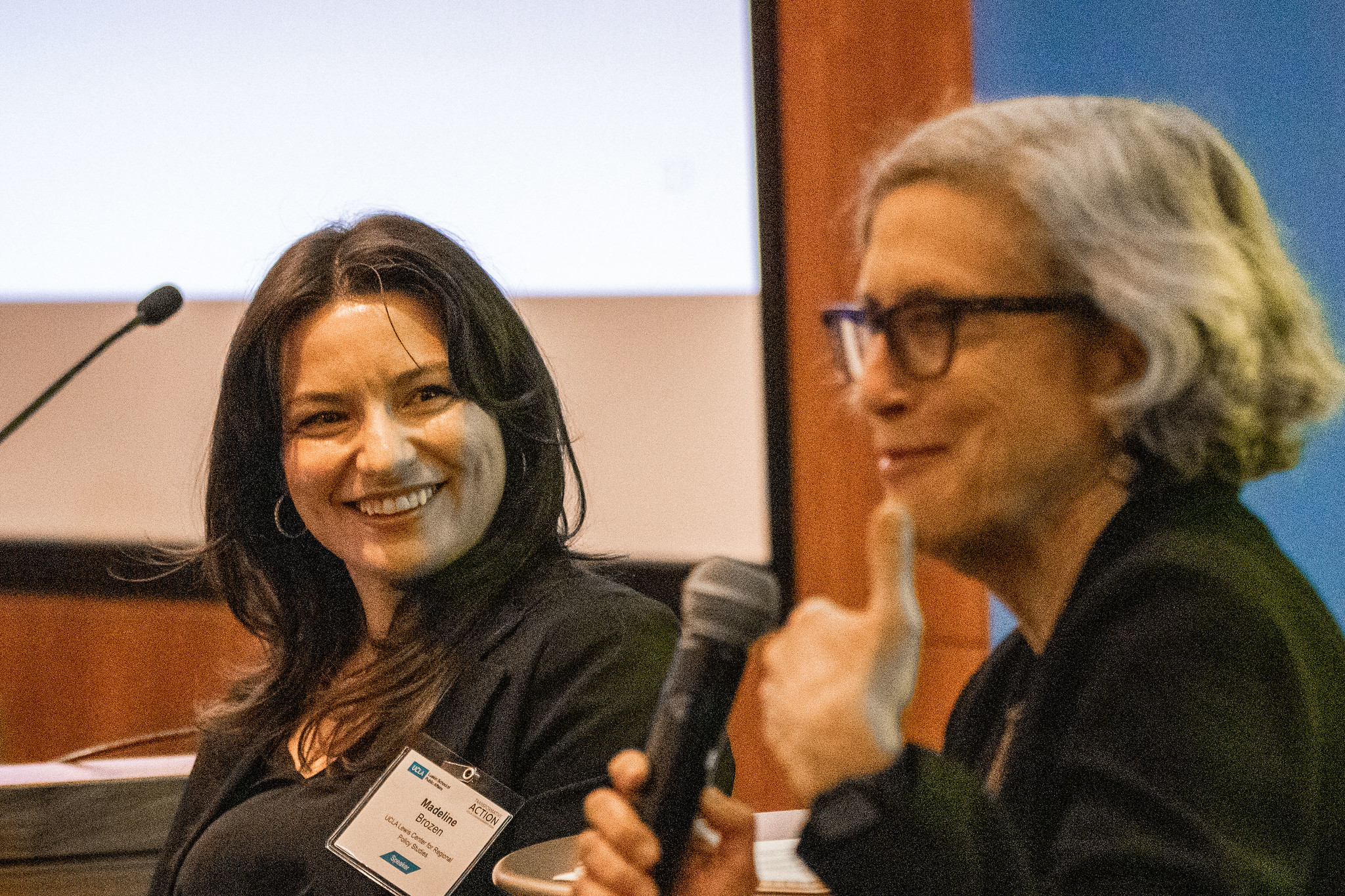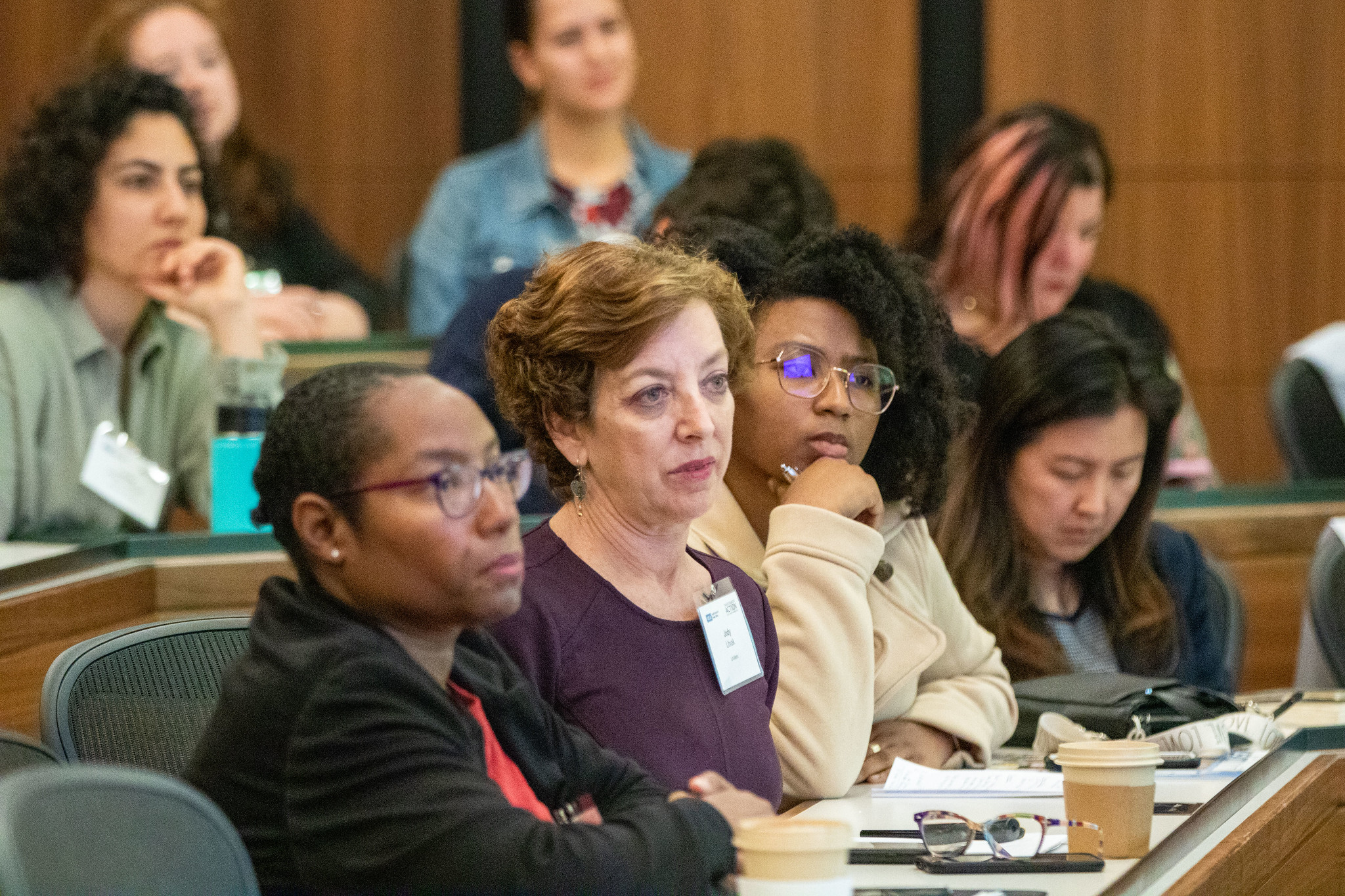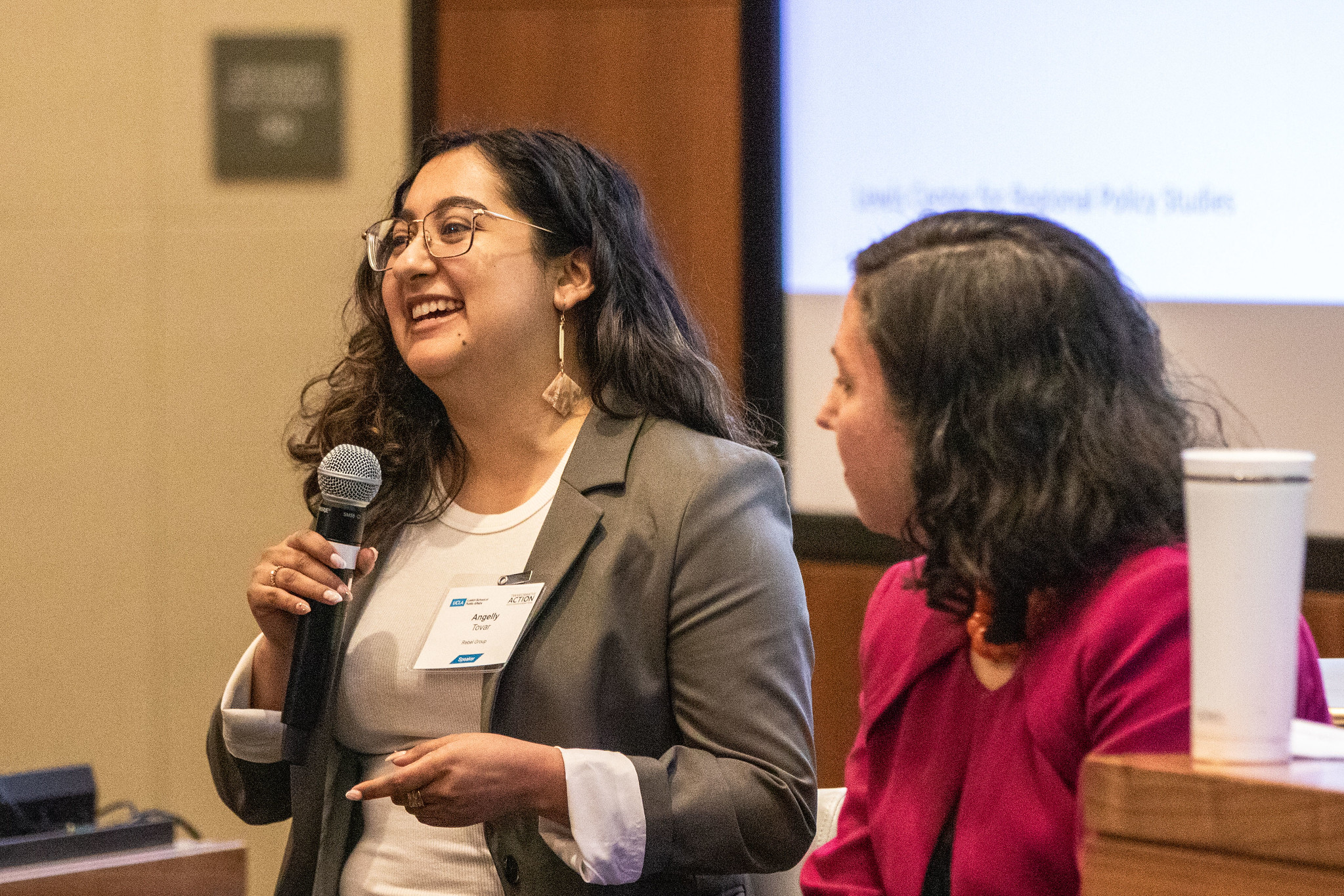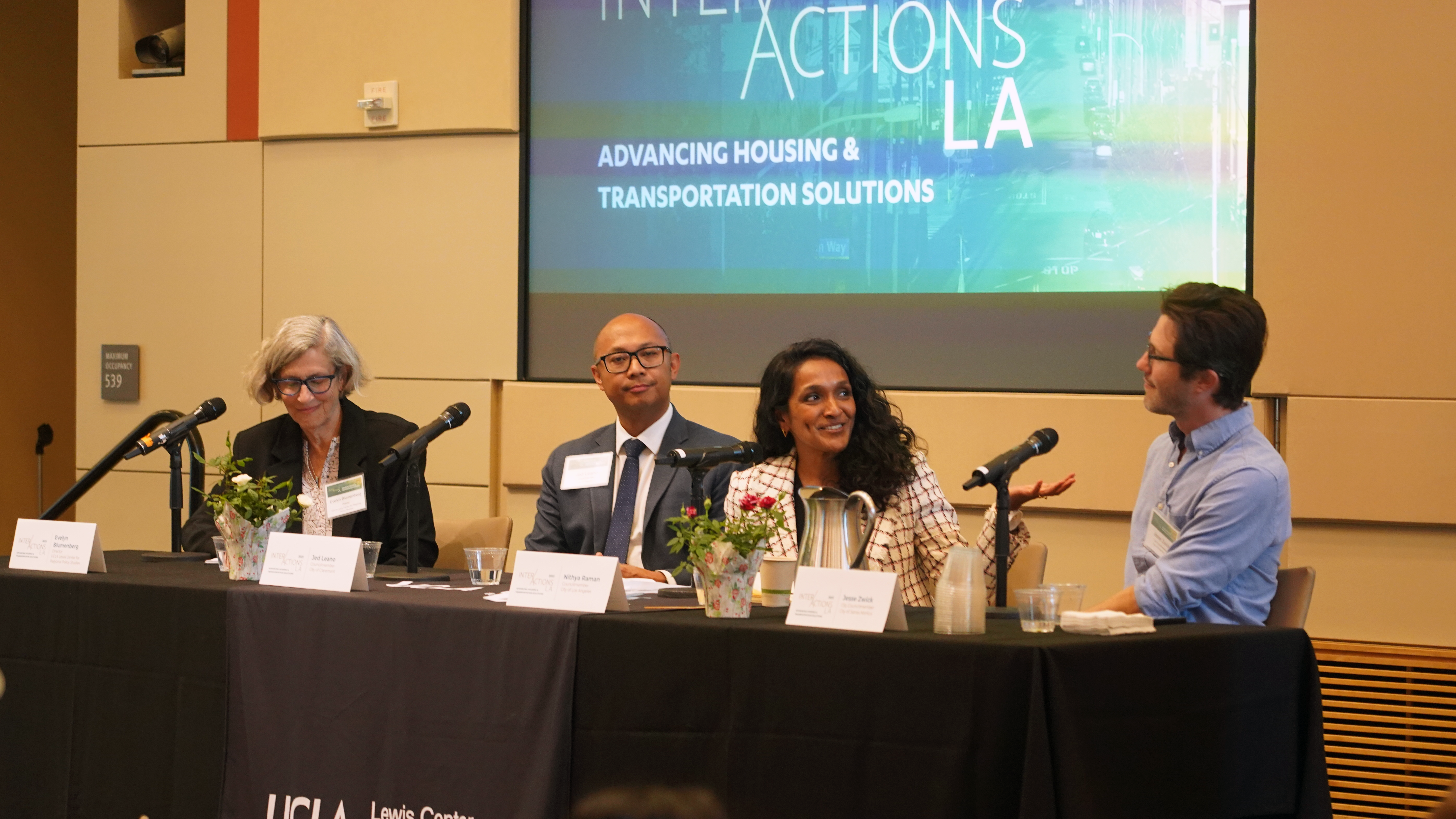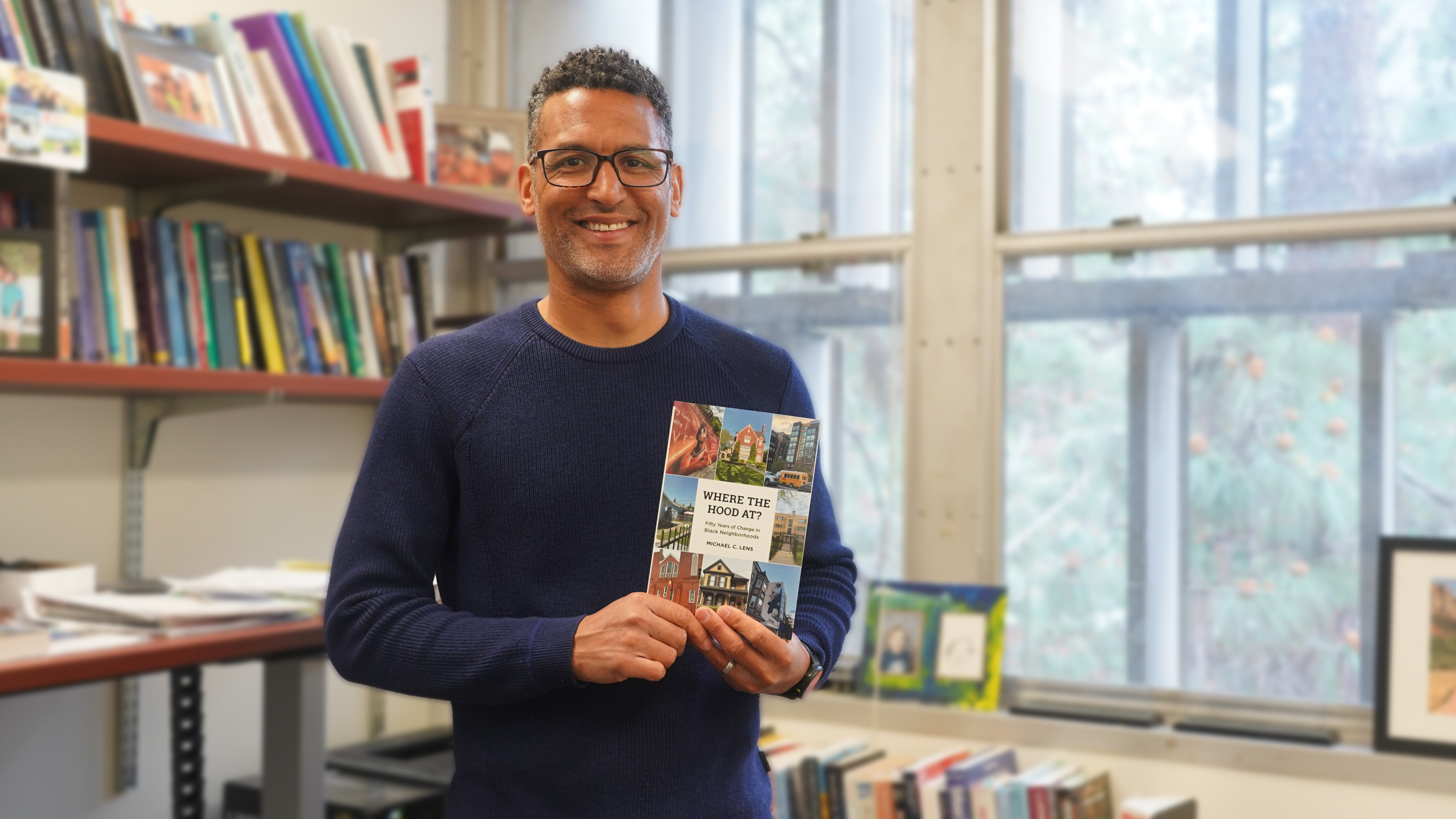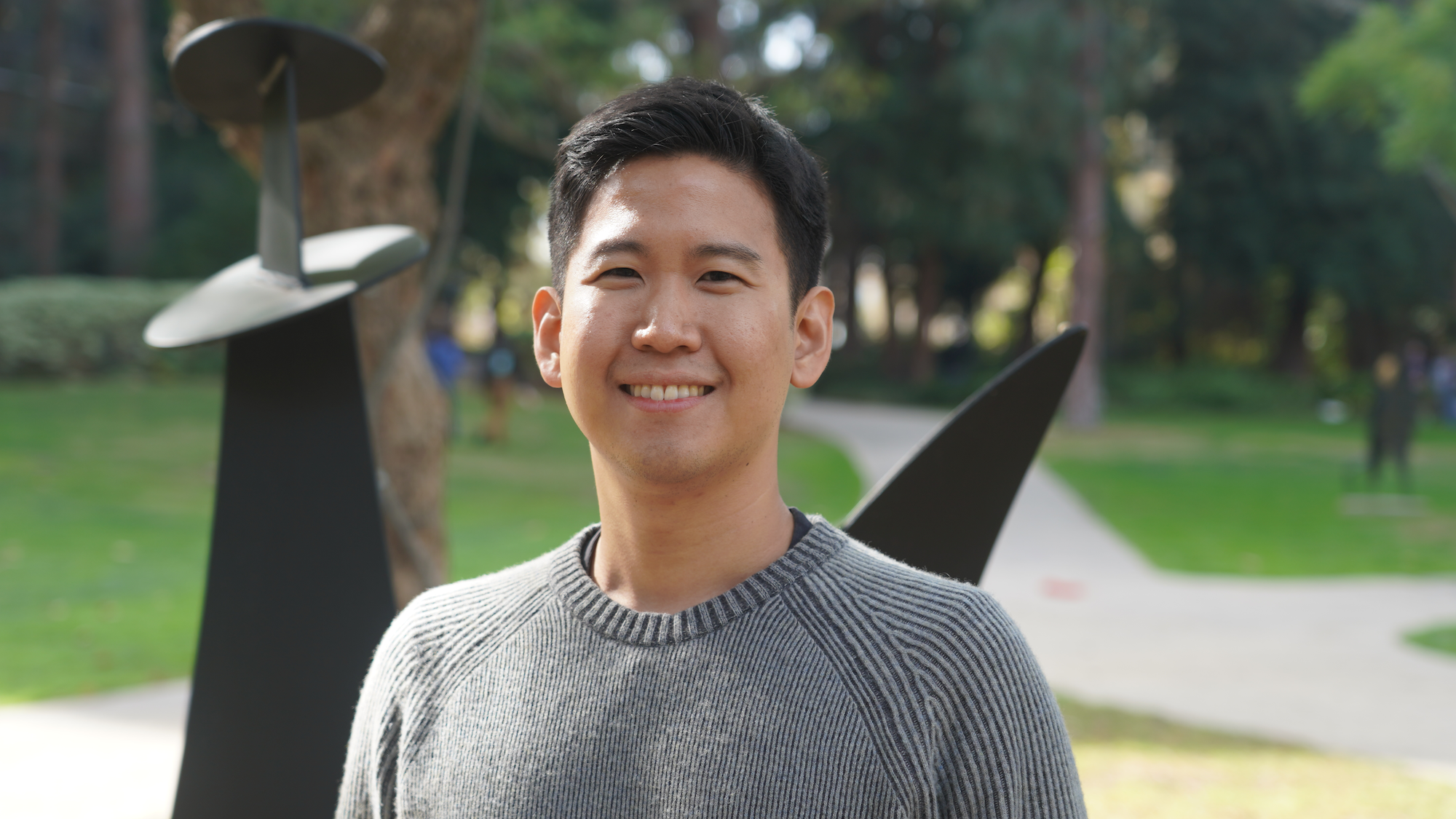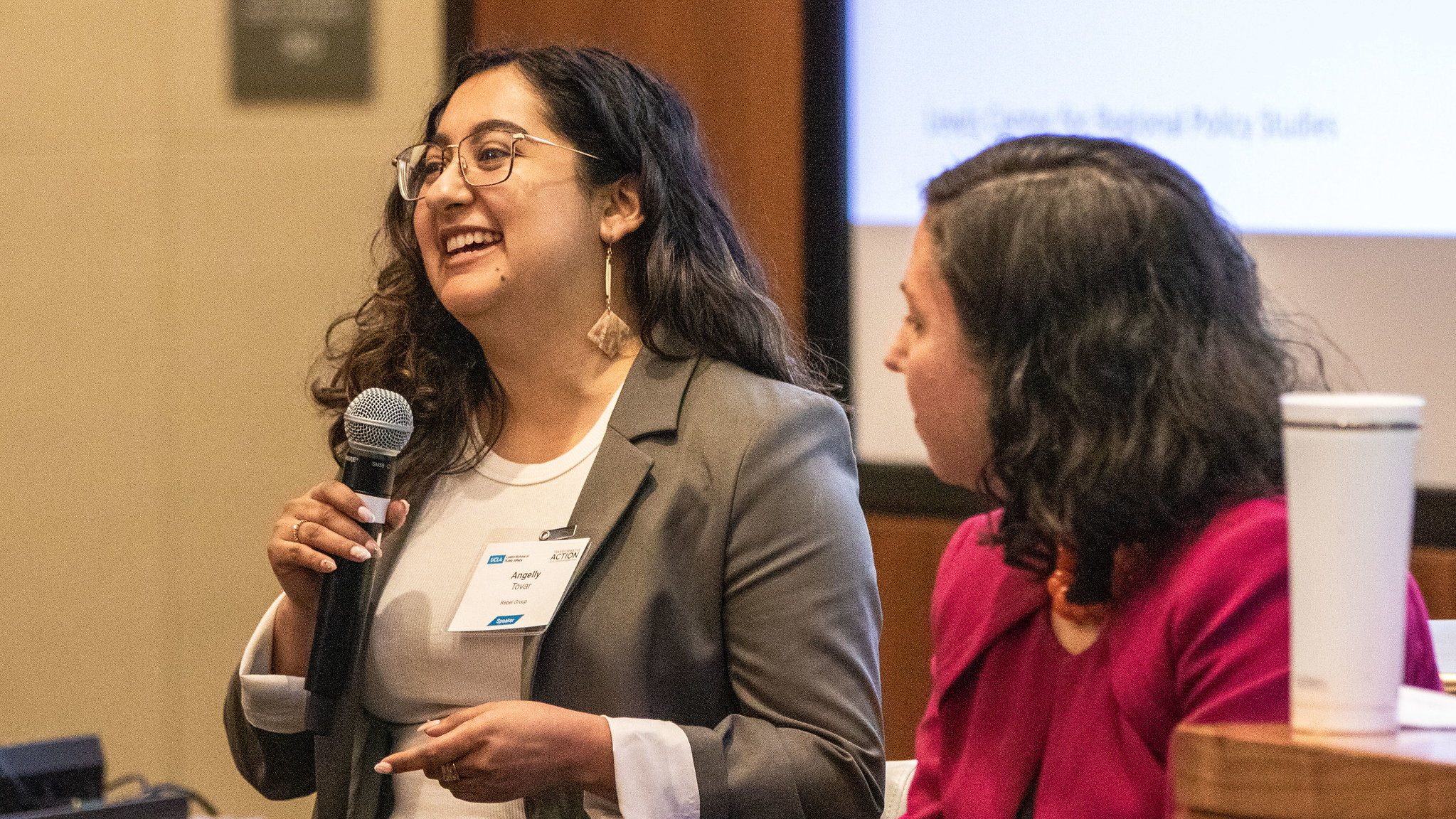
Sharing early insights from Los Angeles’ UBM initiative
Based on the premise that everyone should have access to sufficient transportation options to get to where they need to go, universal basic mobility programs have sprung up nationwide, with Los Angeles taking the lead in implementing the most extensive pilot program in the country.
Gathered for a discussion of UBM, representatives from the L.A. pilot known as the Mobility Wallet convened at the Luskin Summit on the UCLA campus on April 17 to discuss the program’s objectives, early findings and challenges. The panel featured Avital Shavit, senior director with LA Metro’s Office of Strategic Innovation, Angelly Tovar, a consultant at Rebel Group, and Madeline Brozen, deputy director of the UCLA Lewis Center for Regional Policy Studies. Moderating the discussion was Evelyn Blumenberg, Lewis Center director and professor.
Launched in May 2023, the Mobility Wallet is a partnership between LA Metro and LADOT. About 1,000 people living in South Los Angeles were selected by LA Metro to receive $150 per month on a prepaid debit card to pay for shared transportation services, including transit fare, bikeshare and escooters, regional transportation like Amtrak, ride-hail services like Uber and Lyft, and more.
Simultaneously, researchers from UCLA and UC Davis are conducting evaluations of the year-long pilot program. Brozen said the research team is engaging with participants before the program’s commencement, midway through the one-year pilot period, and a few months after the final monthly distribution. These data will support a comprehensive evaluation.
“We’re interested in how effective the Mobility Wallet is at addressing their challenges and what happens with short-term pilots,” Brozen said. “We know that transportation is the glue that unlocks other opportunities in people’s lives.”
Shavit underscored the uniqueness of this approach, saying that engaging research partners and community members at the start of the process is a departure from conventional evaluations once projects end.
Early Results Rolling In
The Mobility Wallet partners and researchers are interested in the effects of giving people $150 a month for transportation spending.
Does it help people access jobs, health care, groceries? How will it affect travel behavior? Does it improve quality of life?
Panelists said that initial data showed a notable reduction in stress levels. “This idea that you have an emergency backup: If the bus doesn’t show up and you’re late for the job interview or appointment, you can call someone to pick you up,” Shavit said.
Moreover, she added, early data show more people using the Mobility Wallet to access ride-hailing services. Most rides, however, are for $20 or less, and more trips — but less spending — is going toward transit.
Operational Challenges and Sustainability
Regarding the operational challenges of running a UBM program, Tovar, who works as a consultant for the California Integrated Travel Project (Cal-ITP) that supports new transit payment approaches, highlighted the critical importance of building community trust and ensuring efficient fund utilization.
“If you don’t think about the process of getting these funds into people’s hands, some people will not use it,” she said.
Looking ahead, the panelists acknowledged the challenges inherent in pilot programs. Even for successful programs, there’s always a question of what’s going to happen when it ends and finding sustainable funding sources.
As the pilot program nears its conclusion, stakeholders are poised to glean invaluable insights that could shape the future landscape of mobility initiatives in Los Angeles and across the country.

